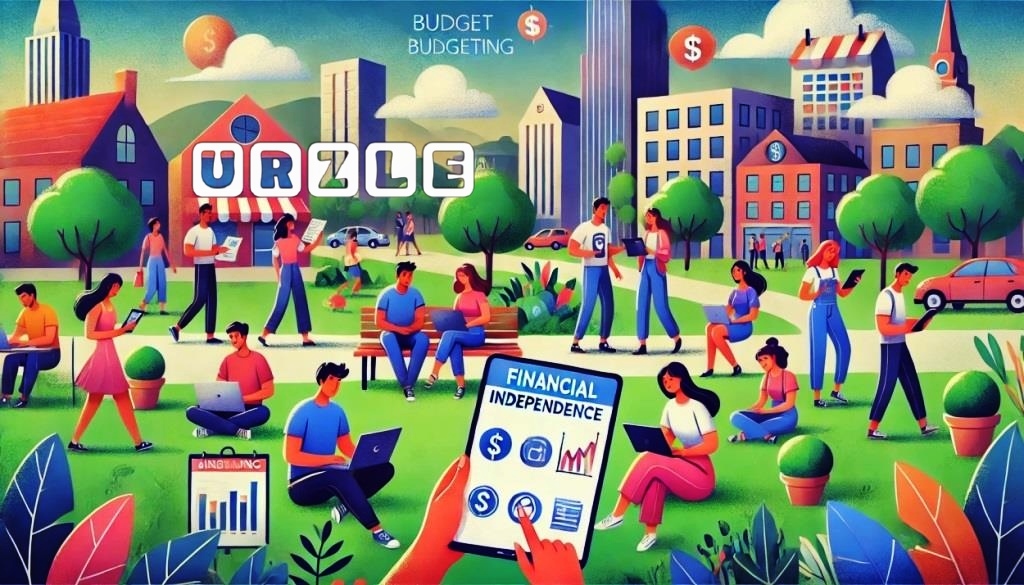In today’s world, financial independence is more than just a buzzword. For Millennials and Gen Z, it signifies freedom, security, and the ability to live life on their terms. However, navigating the complexities of rising living costs, economic uncertainties, and an ever-changing job market can be challenging.
This comprehensive guide breaks down essential strategies to help you take control of your finances, whether you’re single, married, or starting a family.
1. Budgeting for Rising Costs of Living
Inflation, housing shortages, and fluctuating energy prices have made budgeting more critical than ever. A solid budget is the foundation of financial independence, providing a roadmap for managing your money effectively.
Why Budgeting Matters
Budgeting ensures you’re spending within your means and allows you to allocate money toward your priorities, such as savings, investments, or debt repayment.
Effective Budgeting Strategies
- The 50/30/20 Rule:
- Allocate 50% of your income to necessities like rent, utilities, and groceries.
- Use 30% for discretionary spending, including dining out, subscriptions, or hobbies.
- Save or invest the remaining 20% for long-term goals.
This rule is flexible; adjust percentages based on your circumstances.
- Zero-Based Budgeting:
Assign every dollar of your income to a specific purpose. For example, if you earn $3,000 per month, ensure every dollar is accounted for, whether for bills, savings, or leisure. - Envelope System (Physical or Digital):
Categorize your spending and place cash or digital funds into “envelopes” for each category. Once the envelope is empty, no more spending is allowed in that category.
Real-World Example
Emily, a 29-year-old digital marketer, found herself struggling with frequent overspending. She switched to zero-based budgeting using an app like YNAB, reduced her monthly discretionary expenses by 20%, and redirected those funds toward paying off her student loans.
Practical Tips
- Track Your Expenses: Spend a month documenting every purchase to identify spending patterns.
- Automate Savings: Set up automatic transfers to a savings or investment account on payday.
- Review Regularly: Revisit your budget monthly to ensure it aligns with your goals.
2. Financial Independence vs. Retiring Early (FIRE)
The FIRE movement, which stands for “Financial Independence, Retire Early,” is gaining traction among Millennials and Gen Z. It advocates saving aggressively and living frugally to achieve financial freedom earlier than traditional retirement ages.
Understanding the FIRE Movement
- Lean FIRE: Achieving financial independence by living on a modest budget.
- Fat FIRE: Accumulating wealth to support a more comfortable lifestyle in retirement.
- Barista FIRE: Reaching partial financial independence and working part-time for supplemental income and benefits.
How to Embrace FIRE Principles
- Set a Savings Goal:
Determine your Financial Independence Number by multiplying your annual expenses by 25 (based on the 4% withdrawal rule). For example, if you need $40,000 annually, you’ll need $1 million saved. - Cut Expenses Aggressively:
- Downsize your housing or share living spaces.
- Opt for public transportation or a fuel-efficient car.
- Minimize discretionary spending without sacrificing quality of life.
- Maximize Income:
- Seek promotions or higher-paying roles.
- Start a side hustle like freelancing, e-commerce, or teaching online courses.
Real-World Example
Tom and Lisa, a dual-income couple in their 30s, adopted the Lean FIRE approach. They lived in a smaller apartment, saved 60% of their combined income, and invested in low-cost index funds. Within a decade, they were financially independent, allowing Tom to pursue his passion for art while Lisa worked part-time.
Actionable Steps
- Calculate your FI number using online tools like FIRECalc.
- Open and max out retirement accounts (401(k), IRA) to grow your savings.
- Invest in diverse assets, such as stocks, bonds, and real estate.
3. Understanding Tax Benefits
Taxes can feel overwhelming, but leveraging available benefits can save you significant money. Understanding the tax system and optimizing your filing strategy are essential for financial independence.
Key Tax Benefits for Millennials and Gen Z
- Tax-Advantaged Accounts:
- 401(k): Employer-sponsored retirement accounts where contributions are tax-deductible, and growth is tax-deferred.
- IRA (Traditional or Roth): Individual Retirement Accounts offering tax advantages. Roth IRAs are particularly beneficial for young earners in lower tax brackets.
- HSA (Health Savings Account): Triple tax benefits (contributions, growth, and withdrawals for medical expenses are tax-free).
- Tax Credits:
- Earned Income Tax Credit (EITC): For low-to-moderate income earners.
- Child Tax Credit: Available for families with children, providing up to $3,600 per child annually.
- Education Deductions:
- Deduct student loan interest up to $2,500.
- Use the Lifetime Learning Credit to offset education-related expenses.
Real-World Example
Jacob, a newly married accountant, contributed $5,000 annually to his Roth IRA. This move allowed his investments to grow tax-free, ensuring a comfortable retirement while lowering his taxable income.
Tips to Maximize Tax Savings
- Consult a tax professional or use reputable software like TurboTax.
- Keep receipts and detailed records for potential deductions.
- File your taxes early to avoid penalties and identify errors.
4. Investing in Skill Development
Your earning potential is closely tied to your skills. In a fast-paced job market, investing in skill development is a proven way to enhance your career prospects and income.
Why Skills Matter
Employers value candidates with up-to-date skills, particularly in high-demand industries like technology, healthcare, and digital marketing.
Strategies for Skill Development
- Identify In-Demand Skills:
- Tech: Data analysis, coding, AI/ML.
- Creative: Video editing, graphic design, UX/UI.
- Business: Digital marketing, project management, negotiation.
- Learn Online:
- Use platforms like Coursera, Skillshare, and LinkedIn Learning.
- Attend free webinars and workshops.
- Seek Mentorship:
- Connect with professionals in your desired field via LinkedIn or industry events.
- Learn from their experiences and get personalized advice.
Real-World Example
Maria, a 26-year-old graduate, worked as a retail associate while completing a part-time coding boot camp. Within eight months, she secured a software development role that tripled her salary.
Practical Steps
- Allocate time weekly for skill-building activities.
- Set specific goals, like earning a certification within six months.
- Network with peers and join relevant communities to stay updated.
Conclusion
Financial independence is a journey requiring focus, discipline, and adaptability. By budgeting effectively, embracing FIRE principles, maximizing tax benefits, and investing in skill development, Millennials and Gen Z can secure their financial future and achieve the freedom to live on their terms.
Start today by taking small, consistent steps toward your goals. Whether you’re managing your first budget, exploring investment opportunities, or upskilling for a better career, each action you take is a milestone on your path to independence.
Views: 2


